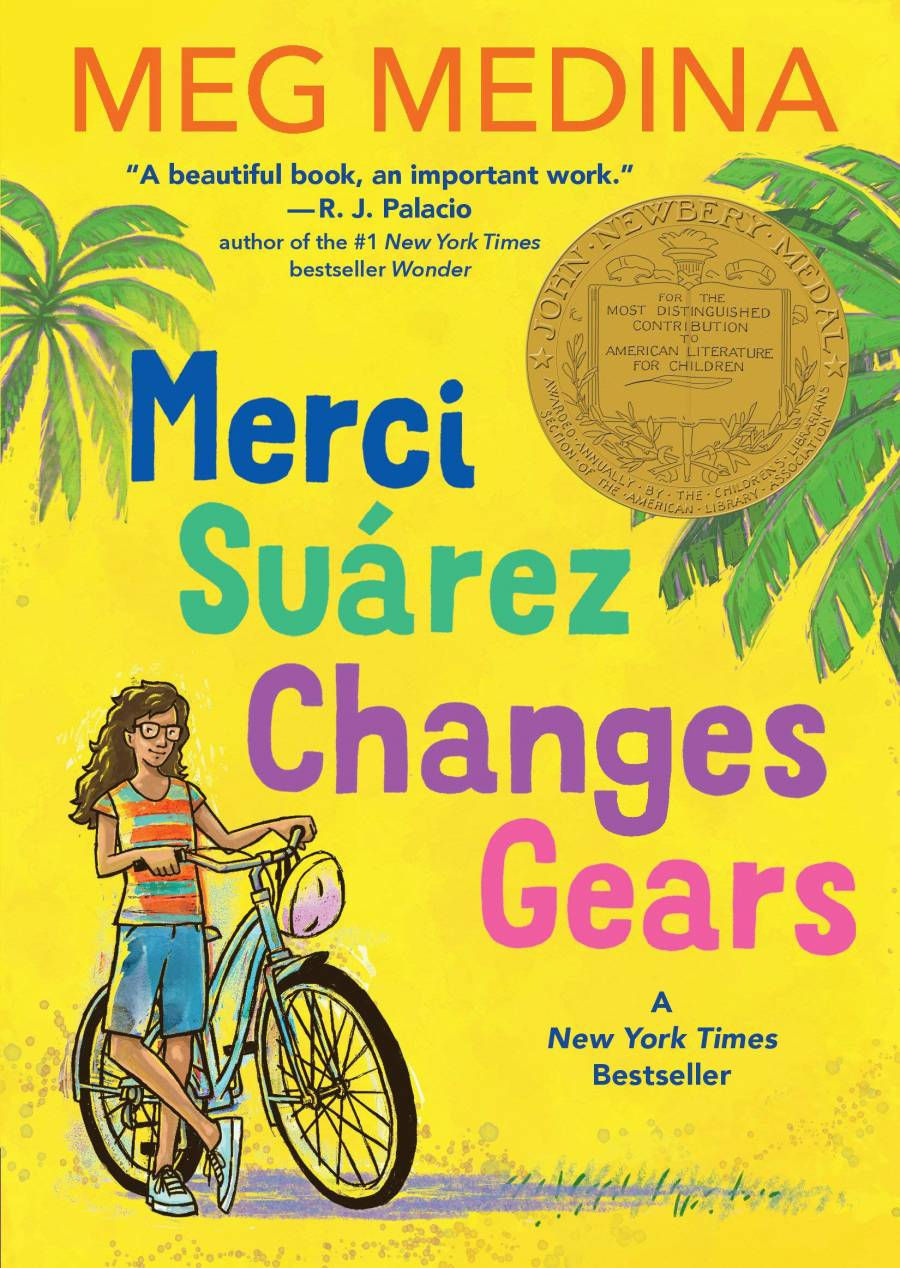Merci Suárez Changing Gears (2019) by Meg Medina - Fiction
- Adam Nunez
- Nov 3, 2020
- 4 min read
Updated: Nov 25, 2020
A heartfelt Middle Grade novel about real middle school struggles and adapting to tough life situations

I was irritated at myself for never before knowing Meg Medina. She’s published over a dozen books including Middle Grade (MG) novels and children’s stories and she’s earned numerous honors such as the Pura Belpré Award–a prize given to authors who excel in capturing Latinx experiences.
Her 2019 MG novel, Merci Suárez Changing Gears, is a deserving Newbery Prize winner. It’s a charming story that remains hopeful despite some heartbreaking life changes. It takes place somewhere in South Florida with our 6th grade protagonist, Merci Suárez, who has to navigate the rough waters of middle school social dynamics (think Mean Girls movie) and the challenges associated with her ailing Abuelo’s health. Her and her family live in Las Casitas–a set of three neighboring identical homes, and for better or worse, everyone is meticulously involved in each other’s lives. They are not poor by any means, but compared to Merci’s friends at her high achieving private school, Seaward Academy, her sensitive preteen social conscious antennas are fully aware of their socioeconomic privileges.
The plot moves smoothly from the start of Merci’s 6th grade year through Christmas vacation. Along the way we meet Edna Santos (think Regina George again from Mean Girls movie), Roli–Merci’s genius 12th grade brother, Lena–Merci’s kindhearted and eccentric 6th grade peer, Abuelo and Abuela, Mami and Papi, and many others. Middle school teachers will appreciate that there’s little focus on love interests, and while “romantic” relationships are a normal aspect of middle school life, Medina chooses to focus on other important areas. Merci’s story includes some common preteen struggles like saving money for fun things, collaborating with peers on school projects, and learning to navigate between different adult personalities.
But underlying the entire novel is Merci’s Cuban-American culture. Medina superbly weaves in Latinx sociopolitcal struggles such as immigration and discrimination in a way that middle schoolers will understand. This is displayed in comical ways such as when Merci’s TÍa questions “‘Who in their right mind would hire a stranger to watch their kids when they have relatives around?’ I sigh. It’s no use fighting. When it comes to helping, the motto around here is family or bust’” (p. 48). There’s other, more serious, examples like when Merci’s word could be pitted against the account of a typical Seaward Academy family (White and wealthy) and Roli reminds her “Who’s going to believe you, Merci?...Without proof, it’s your word against hers” (p. 248). Struggles like these will especially resonate with minority and low socioeconomic readers.
The main crux of the novel involves Merci’s Abuelo, Lolo, and his rapidly weakening health. The implications of Lolo’s situation leans into the overarching theme of how to make the best choices in the face of difficult life changes, which among other things, highlights the novel’s creative title.
At just over 350 pages, this is not a one day MG literature read. But you’ll be thankful for the length as the plot moves so steadily and gracefully you might forget you’re reading. Medina manages to give just the right amount of plot details so as not to bore readers, or, on the other hand, rush past crucial moments that center the heart of the story (as a middle school teacher, I’ve found that this is a fine line that can make or break young teen readership). And her characters shine with flexibility and growth. For Latinx readers in particular, you’ll likely feel an affinity towards Medina’s characters as they avoid stereotypical molds, but still feel familiar. This doesn’t mean perfect, but even better–genuine. Their actions will make you squirm with frustration, and other times, yearn for a warm hug. One thing is for sure: if they were real people you’d invite them over for dinner and be thankful for their generous personalities.
Novels like Merci Suárez highlight the need for more multicultural literature. In a round table-like interview in Washington D.C. Medina references a study from the University of Wisconsin about how in 2011 25% of public school kids identify as Latino but only 3% of the books reviewed were by or even about Latino kids. 2011 was nearly 10 years ago, but the numbers probably haven't changed enough to reflect the ethnic makeup of today’s rapidly diversifying population. We’re in an age of a shifting minority majority population, but our literature hasn’t caught up to this reality yet.
Labeling Merci Suárez as a MG novel might put off some adult readers. However, it’s sometimes the characteristics of superb MG literature–namey: guilelessness, curiosity, and innocence–that grounds all of us to an even playing field where honest conversations about tough issues can begin. This is true of good literature more generally, and it’s something that Meg Medina’s Merci Suárez is waiting to show us.
I’ll definitely be reading the upcoming sequel, Merci Suárez Can’t Dance.
Highest Score - 5 Trophies
Writing: 🏆🏆🏆🏆🏆
Readability: 🏆🏆🏆🏆🏆
Plot: 🏆🏆🏆🏆
Characters: 🏆🏆🏆🏆🏆
Overall: 🏆🏆🏆🏆🏆
November 3, 2020



Comments